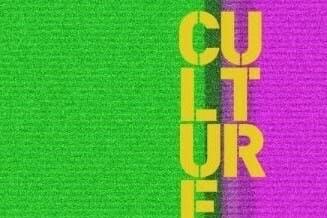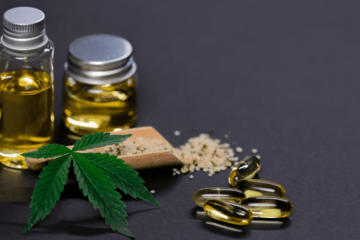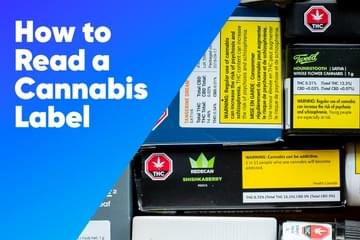
How to Find a Medical Marijuana Doctor Near Me
Published on 5/13/20
With a quickly growing medical cannabis community, the number of people finding medical marijuana doctors and obtaining medical marijuana cards, especially in states where recreational cannabis is still outlawed, are increasing rapidly as well. In fact, during just one month of the COVID-19 quarantine, the percentage of people with MMJ cards grew by 10% -over 7,200 people in Massachusetts alone.

Medical marijuana can be a wonderful option to help those with varied medical conditions and persisting symptoms that may not dissipate after trying traditional medicine. Today, medical cannabis is legal in the majority of states across the nation making it fairly accessible to a large portion of the population. Because it's not taxed as high as recreational marijuana in many cases, MMJ is wonderful for patients who need access to more affordable medicine on a frequent basis.
Whether someone suffers from a specific illness or simply wants to save as a frequent buyer, finding a decent MMJ doctor to receive a medical marijuana card can be very easy - if you live in the right states. Unfortunately, for those who live in states with confusing cannabis laws and/or backed-up government offices, visiting a MMJ doctor's office, let alone getting a MMJ card, can be extremely difficult (but not impossible).
So instead of blindly searching for "medical marijuana doctors near me" or asking yourself "what is a medical marijuana card?" or "how do I get a medical marijuana card?" continue reading this article to get the answers you really need.
What is a Medical Marijuana Card?
Medical marijuana cards, sometimes referred to as MMID, MMJ cards or cannabis cards, are a form of identification that allows patients to utilize medical dispensaries and purchase herb for treatment of a specific condition. Cannabis cards also allow patients in certain states to grow plants at home or have medical marijuana delivered to them directly.

As we mentioned, there are 33 states where medical marijuana is legal, 11 of which allow the use of recreational marijuana. If you are a part of the 22 states that only allows medical marijuana, then a medical marijuana card is an automatic legal requirement to buy or possess cannabis of any kind.
Be mindful that every state has very specific qualifying conditions in order to receive a MMJ card, so it's imperative that you check state websites before starting to process to save time and resources. Note that some of the most common qualifying conditions for medical marijuana often include cancer, arthritis, chronic pain, epilepsy/seizures, glaucoma, ADHD and more.
How to Find a Medical Marijuana Doctor Near Me
If you're asking yourself, "how can I find a medical marijuana doctor near me?" - don't worry, we've got your back. There are hundreds of qualified medical cannabis doctor offices across the country to choose from but finding them will depend on where you live.

For some states, it will be mandatory to visit a MMJ doctor's office in person. For others, like California, Oklahoma or New York, telemedicine is a valid option. While not yet available in every state, telemedicine is trending in the cannabis community, as people are now receiving treatment recommendations without having to visit medical marijuana clinics. In most cases, these at-home appointments are specifically for renewals rather than obtaining a card for the first time. However, if you are interested in having a 'cannabis doctor near me' come to you, check to see if your state offers this option. allowing patients to speak to a doctor over a secure live video call.
Thankfully, Where's Weed lists many medical marijuana doctors all in one place on our site. Simply go to WheresWeed.com, type in your zip code, then click the "Doctors" tab (if available) to start your search.
Tips When Visiting a MMJ Doctor
When looking for medical cannabis doctors, be weary of appointments for less than $50 as these are a good indication of a scam. If possible, referrals are a great way of testing a MMJ doctor's legitimacy. As with most instances when choosing to buy a new product or service, do your own research before making an appointment.
One of the most common mistakes that potential patients make is booking an appointment, paying the fee, then finding out that your qualifying medical condition is not accepted. Needless to say, asking the right questions up front will benefit you in the long run!
Finally, make sure that the examination is thorough. Doctors for medical marijuana should be inquisitive about your condition, spend a decent amount of time with the examination and not be in a rush. If a medical marijuanas doctor is seemingly 'quick and dirty,' it may be a good idea to get out while you can.
Obtaining a Medical Marijuana Card
While the ease of obtaining a cannabis card varies from state to state, the process remains relatively simple. If you believe medical marijuana is right for you, here are the general steps to obtain a card:

- Must be 18 years or older.
- Must have valid proof of identification from the same state that you are applying in.
- Must have a qualifying medical condition, as defined by the state that you are applying in. Again, this will differ greatly by state so do your research!
- Get a copy of your medical records. In some states, a patient will be required to show copies of their medical history. To save time, do this step before finding a MMJ doctor.
- Find a medical marijuana doctor near you.
- Get a recommendation from a MMJ doctor. Since MMJ is still illegal on a federal level, a medical marijuana doctor won't prescribe specific products, rather issue a recommendation to the patient. This recommendation includes a letter stating the patient's condition, as well as the decision to elect cannabis as a valid treatment.
- Submit an official application to the state. Once a recommendation letter is completed, you'll need to submit an application through the state and pay a fee. The fee will also vary depending on which state you are in, but typically hovers around $100-$200. Note that most states require a patient to renew their MMJ card every year with the same fee attached. Some states allow you to extend expiration dates, but this of course will cost more money (somewhere around $200 for two years or $250 for three years).
The Pros & Cons of Getting a Medical Marijuana Card
There are often pros and cons to most things in life - including getting a MMJ card. Although many of the positives outweigh the negatives in the minds of many (especially those suffering from serious medical issues), it's ultimately up to you to decide if this path forward is the best choice!
The Pros
- Legal protection. For people residing in states where cannabis is still illegal, a medical marijuana card is the difference between a misdemeanor and freedom to consume. In states like Arkansas, possession of less than four ounces can land someone in jail for a year, along with a $2,500 fine. However, people with a MMJ card can safely and legally avoid this.
- Lower costs. As you may already know, recreational marijuana is taxed heavily, often leading to higher and higher prices, year after year. A prime example? Washington State now imposes a whopping 37% sales tax on all recreational cannabis purchases. However, medical marijuana is not taxed at the same rate, resulting in much lower costs for MMJ patients.
- Also, compared to prescription medication, marijuana is always going to be on the cheaper side. In fact, the FDA recently approved Epidiolex, which is the first drug utilizing active ingredients in cannabis to treat epilepsy. Unfortunately, it costs up to $30,000 a year which is far from fair for those suffering in pain.
- Higher potency limits. Due to the fact that dosing is extremely important when using marijuana medicinally, the allowed potency limits are much higher as a result. Therefore, significantly more potent cannabis can be made available to alleviate more severe symptoms in patients.
- Higher quality bud. Quality of MMJ products stem from thorough testing, highly controlled environments and regular pesticide checks. Although the recreational market also demands a similar quality of control, MMJ often focus on smaller batches of herb and medical dispensaries have professionals who can help you find medical marijuana that's best for you.
- Plant cultivation at home. One last major advantage of MMJ cardholders is the ability to grow marijuana at home. In most states, a MMJ patient can grow 6 plants, while some allow you plant as many as you can fit within 100 square feet!
The Cons
- Annual Renewal Fees. As mentioned before, most states require annual fees to maintain a MMID which can add up over the years. Therefore, unless you are a regular user, the $50 - $200 renewal fees may not be worth it.
- Forget about working for the government. Even in states where marijuana is 100% legal, having a MMJ card will cost you your government job. No matter your situation, you cannot work for the government if you test positive for cannabis.
- State-to-state dependencies. The process of obtaining marijuana while simple in nature, can be quite convoluted with state to state nuances. In other words, some states will make it much harder to obtain a MMJ card where others are very relaxed.
- You can't legally own a firearm. Pointed out by the ATF, medical marijuana consumers are not permitted to own a firearm of any kind.
- You can't have a commercial license. The Department of Transportation forbids employment of medical marijuana users.
Do you have a favorite marijuana doctor near you? Has medical marijuana impacted you positively or negatively? Share your comments below!



















